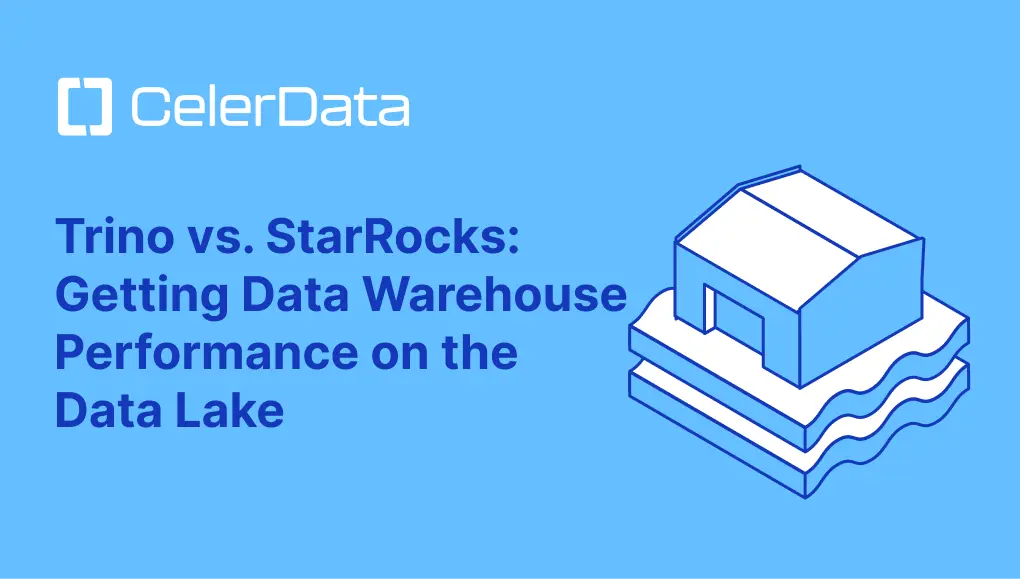
Citus

Join StarRocks Community on Slack
Connect on SlackWhat Is Citus
Overview of Citus
Definition and Purpose
Citus is a powerful extension for PostgreSQL. It transforms PostgreSQL into a distributed database system. This transformation allows you to distribute data and queries across multiple nodes. The primary purpose of Citus is to provide horizontal scalability. Citus enables you to handle large datasets efficiently. The Citus extension maintains the robust features of PostgreSQL. It enhances these features with distributed capabilities.
Key Features
Citus offers several key features that enhance database performance:
-
Horizontal Scaling: Citus distributes tables and queries across multiple nodes. This distribution allows you to scale out your database as needed.
-
Distributed Query Processing: Citus processes queries in parallel across nodes. This parallel processing improves query performance significantly.
-
High Availability: Citus uses Patroni for high availability and automatic failover. This ensures that your database remains operational even during failures.
-
Integration with PostgreSQL: Citus retains all PostgreSQL features. You can continue using familiar tools and extensions.
How Citus Works
Architecture
Citus architecture employs a shared-nothing approach. Each node in the cluster operates independently. Nodes coordinate to manage data and queries. This coordination allows the system to scale by adding more nodes. Citus architecture enables efficient use of memory, compute, and disk resources. The architecture supports both single-node and multi-node deployments.
Data Distribution Mechanism
Citus distributes data using sharding. Sharding involves partitioning tables into smaller pieces called shards. Each shard resides on a different node. This distribution allows for parallel query execution. Citus uses a distributed query planner. The planner optimizes how queries run across shards. This optimization results in faster query responses. Citus also supports reference tables. Reference tables store common data used by all shards. This feature reduces data duplication and improves efficiency.
Advantages of Using Citus
Scalability
Horizontal Scaling
Citus scales horizontally by distributing data and queries across multiple nodes. This capability allows you to handle large datasets efficiently. Traditional single-node databases often struggle with scalability. Citus provides a solution by enabling horizontal scalability. The Citus database cluster can expand as your data grows. Each node in the cluster contributes to processing power and storage capacity. This setup ensures that your database can manage increasing workloads without performance degradation.
Performance Improvements
Citus offers significant performance improvements over single-node databases. Distributed query processing allows Citus to execute queries in parallel. This parallel execution speeds up query response times. The Citus database cluster optimizes resource utilization. Memory, compute, and disk resources are used more efficiently. This optimization results in faster data retrieval and processing. Businesses benefit from improved performance in real-time analytics and data-driven applications.
Flexibility
Integration with PostgreSQL
Citus extends PostgreSQL by transforming it into a distributed database system. This integration retains all the powerful features of Postgres. Users can continue using familiar tools and extensions. The Citus extension for Postgres provides full SQL support. This compatibility ensures a seamless transition for existing applications. Organizations can leverage the robust ecosystem of PostgreSQL while gaining distributed capabilities.
Use Cases
Citus serves various use cases, making it a versatile choice. Multi-tenant SaaS applications benefit from Citus's tenant isolation features. Real-time analytics dashboards gain from fast query responses. Citus handles time series data processing with efficiency. The Citus database cluster supports complex queries on large datasets. Businesses can make data-driven decisions with confidence. Citus provides the tools necessary for scaling and optimizing data management.
Citus vs. Other Distributed Databases
Comparison with Competitors
Performance Benchmarks
Citus transforms PostgreSQL into a distributed database system. This transformation allows Citus to handle large datasets efficiently. Citus excels in real-time analytics by parallelizing SQL queries over multiple nodes. This capability ensures responsiveness even with terabytes of data. Traditional databases often struggle with such demands. Citus provides a solution by distributing data across a cluster. The architecture of Citus enhances performance and scalability.
Citus offers significant storage efficiency. The combined size of Citus shards is 50% smaller than a traditional PostgreSQL instance. Each shard occupies only 29 MB compared to PostgreSQL's 54 MB. This reduction showcases the efficiency of Citus's distributed architecture. Businesses benefit from reduced storage costs and improved data management.
Feature Set Analysis
Citus retains all PostgreSQL features while adding distributed capabilities. Users can continue using familiar tools and extensions. The integration with PostgreSQL ensures a seamless transition for existing applications. Citus supports full SQL features, enabling complex queries on large datasets. The distributed query planner optimizes how SQL queries run across shards. This optimization results in faster query responses.
Citus provides high availability through Patroni. This feature ensures that your database remains operational during failures. Citus uses sharding to distribute data across nodes. Sharding improves performance by allowing parallel query execution. Reference tables store common data used by all shards. This feature reduces data duplication and enhances efficiency.
Limitations and Challenges
Potential Drawbacks
Citus may present challenges for users unfamiliar with distributed systems. The complexity of managing a Citus cluster requires expertise. Users must understand how to configure nodes and manage data distribution. The learning curve can be steep for those new to distributed databases. Citus may not be suitable for small-scale applications. The overhead of managing a cluster might outweigh the benefits for smaller datasets.
Solutions and Workarounds
The Postgres experts at Crunchy provide valuable resources for learning Citus. Craig Kerstiens offers insights into optimizing Citus deployments. Users can leverage community support and documentation. These resources help overcome the challenges of managing a Citus cluster. Training and workshops can enhance understanding of Citus and PostgreSQL cluster management.
Citus provides flexibility in deployment options. Users can choose between open-source and managed services. The managed service simplifies cluster management. Organizations can focus on data-driven applications without infrastructure concerns. Citus empowers businesses to scale efficiently while maintaining PostgreSQL's robust features.
Citus Cluster and High Availability
Citus Cluster Architecture
Node Configuration
Citus transforms PostgreSQL into a distributed database system. Each node in the Citus cluster operates independently. The nodes work together to manage data and queries efficiently. The architecture allows you to scale your database by adding more nodes. This setup enhances performance and resource utilization. Each node contributes to the overall processing power and storage capacity. The configuration supports both single-node and multi-node deployments.
Sharding and Replication
Citus employs sharding to distribute data across nodes. Sharding involves partitioning tables into smaller pieces called shards. Each shard resides on a different node. This distribution allows for parallel query execution. The distributed query planner optimizes how queries run across shards. This optimization results in faster query responses. Citus also supports replication to ensure data redundancy. Replication provides an additional layer of data protection.
Ensuring High Availability
Role of Patroni
Patroni plays a crucial role in ensuring high availability for Citus clusters. Patroni manages automatic failover and leader election. This management ensures that your database remains operational during failures. Patroni monitors the health of each node in the cluster. If a node fails, Patroni promotes a standby node to become the new leader. This process minimizes downtime and maintains data availability.
Key Strategies
Several strategies enhance high availability in a Citus cluster alongside Patroni. Regular monitoring of node health is essential. Use monitoring tools to track node status and performance metrics. These insights help identify potential issues before they impact availability. Implement a robust backup strategy to protect against data loss. Regular backups ensure that you can restore data in case of failures.
Load balancing distributes queries evenly across nodes. This distribution prevents any single node from becoming a bottleneck. Load balancing improves overall performance and availability. Ensure that the infrastructure can handle the expected workload. Choose machines with sufficient memory and processing power. This choice prevents performance degradation during peak workloads.
The Future of Citus in Distributed Databases
Emerging Trends
Technological Advancements
Citus continues to evolve with technological advancements. The integration of machine learning with databases represents a significant trend. Citus can leverage machine learning for predictive analytics. This capability enhances decision-making processes. The use of artificial intelligence in database management is growing. Citus can automate tasks such as query optimization. Automation reduces manual intervention and improves efficiency.
The rise of edge computing impacts distributed databases. Citus can process data closer to the source. This approach reduces latency and improves response times. Edge computing supports real-time applications. Citus can handle data from IoT devices efficiently. The architecture of Citus allows seamless integration with edge computing environments.
Market Adoption
The adoption of Citus in the market is increasing. Businesses recognize the benefits of distributed databases. Citus provides scalability and high availability. These features attract organizations with large datasets. The demand for real-time analytics is growing. Citus excels in processing queries quickly. Companies use Citus for applications requiring fast data retrieval.
The open-source nature of Citus contributes to its popularity. Organizations appreciate the flexibility of open-source solutions. Citus allows customization to meet specific needs. The community support for Citus is strong. Users share resources and solutions. This collaboration enhances the overall experience of using Citus.
Predictions and Opportunities
Future Developments
The future of Citus involves continuous development. Developers focus on improving performance. Enhancements in query execution are expected. Citus aims to reduce query response times further. The introduction of new features will enhance usability. Developers work on simplifying cluster management. User-friendly interfaces will make Citus more accessible.
The integration with cloud services will expand. Citus already offers managed services. More cloud providers may adopt Citus. This expansion provides users with more options. Cloud integration simplifies deployment and management. Users benefit from the scalability of cloud environments.
Strategic Implications
Organizations must consider strategic implications when adopting Citus. The ability to scale horizontally offers competitive advantages. Businesses can handle increasing workloads efficiently. Citus supports growth without sacrificing performance. Companies can enter new markets with confidence. The scalability of Citus ensures readiness for expansion.
Data security remains a priority. Citus provides features for data protection. Organizations must implement robust security measures. Regular audits and monitoring enhance data security. Citus supports compliance with industry regulations. Businesses can maintain trust with customers by ensuring data safety.
Conclusion
Citus plays a transformative role in distributed databases. Citus enables horizontal scaling of PostgreSQL databases. Citus distributes tables, writes, and SQL queries across multiple nodes. Citus enhances scalability and performance. Citus provides real-time analytics capabilities. Citus parallelizes SQL over multiple nodes for millisecond query times. Citus ensures scalable query execution by distributing queries across the cluster. Citus helps in scenarios where more performance is needed for real-time analytical queries. Citus represents the future of distributed databases. Citus offers seamless scaling to accommodate growing workloads.



.jpg)